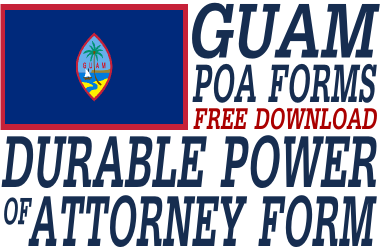
Lasting Power Of Attorney Forms
Lasting power of attorney forms are important legal documents enabling individuals who have capacity and are over 18 to choose another person (Attorney(s)) to make decisions on their behalf. The decisions are of either property and financial affairs or health and welfare. Below is a sample of how lasting power of attorney forms look like.
You can Download the Lasting Power of Attorney Forms, customize it according to your needs and Print. Lasting Power of Attorney Forms is either in MS Word and Editable PDF. Sample Lasting Power of Attorney Forms Download Editable Lasting Power of Attorney Forms for only $4.99 [paiddownloads id=”3302″].

A lasting power of attorney (LPA) is a legal document that allows someone to give another person(s) the legal authority to make decisions on their behalf, if, at sometime in the future they are unable to make decisions themselves. Other LPA Related Forms and Documents. Information sheet for filling in the LPA Form 1 Application. Disclaimer by a donee of a Lasting Power of Attorney.
See also: Lasting powers of attorney (LPAs) in were created under the, and came into effect on 1 October 2007. The LPA replaced the former (EPA) which were narrower in scope. Download lagu berjalan bergandengan.
Their purpose is to meet the needs of those who can see a time when they will not be able – in the words of the Act, will lack – to look after their own personal, financial or business affairs. The LPA allows them to make appropriate arrangements for family members or trusted friends to be authorised to make decisions on their behalf. The LPA is created and registered with the (OPG), an executive agency of the of the. Contents • • • • • • • Purpose [ ] The LPA is a specific form of the more general which is widely used in countries which have a system. The word in this context is someone (or in some circumstances an organisation such as a company) legally appointed or empowered to act for another person. The person giving the power is known as the donor.
The word 'lasting' in the context of an LPA means that the power may continue even if the person (though still alive) no longer has to exercise the power. The Lasting Power of Attorney can be applied for online. The gov.uk tool offers guidance throughout the process, and prevents the user from making mistakes that may invalidate their LPA application. The former was simple to administer, but failed to provide for some decisions which may have to be made in circumstances that preclude their being made by the person principally affected. In particular, the attorney's powers under the EPA were largely defined in terms of money and property, and were not related to decisions on medical matters such as the continuation or otherwise of life-sustaining treatment, or welfare matters such as a move to a different kind of accommodation. The primary purpose of the changes under (MCA 2005) was to rectify this omission, by creating two LPAs: one for property and financial affairs (the LPA(PFA)) and one for Health and Welfare (the LPA(H&W)).
Business Lasting Power of Attorney [ ] While the LPA is primarily designed to deal with personal affairs and finances, business owners or directors are faced with more complex considerations. While a close friend or family member may be suitable for managing personal affairs in times of incapacity, businesses may require subject matter experts and depending on the business structure, there are certain governance requirements. Therefore, the Business Lasting Power of Attorney (BLPA) is a separate arrangement that is similar in function to the LPA. Business owners arranging a LPA and BLPA can therefore split between personal and business affairs. Administrative and legal background [ ] The LPA system is administered by the (OPG), an agency of the of the. Its contact details are explained in section 2.2 below headed 'The role of the OPG in relation to Lasting Powers of Attorney'.
The was set up in 2007 under the, replacing the similarly-named Public Guardianship Office which had a more limited range of responsibilities. It is headed by the Public Guardian, whose main role is the protection of people who lack mental.
The MCA 2005 provides a statutory framework to empower and protect vulnerable people who are not able to make their own decisions. It makes clear who can take decisions on their behalf, in which situations, and how they should do so. Through the LPA, the Act enables people to plan ahead for a time when they may lose capacity. Detailed guidance is provided by a Code of Practice to the MCA 2005 to the Act, which people working as professionals in this field are required to 'have regard to': that is, to observe, unless (having decided in specific circumstances not to do so) they are prepared to explain afterwards – most probably in a post-incident inquiry – why not. Where there are suspicions that an attorney might not be acting in the best interests of the donor, the will arrange an investigation.